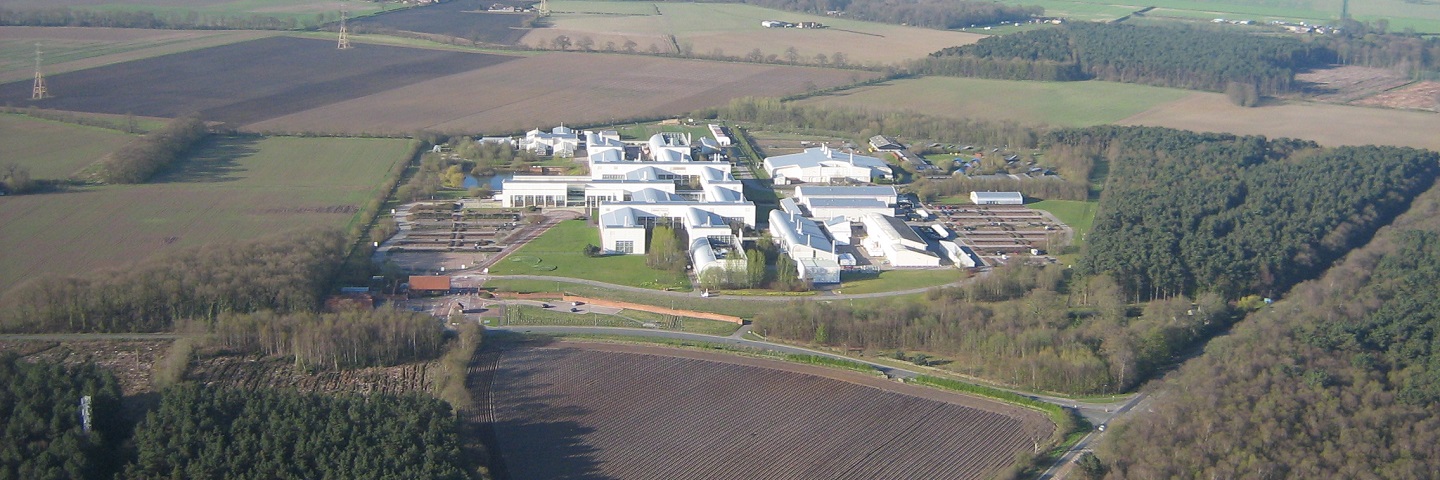
Visit our other sites
-
Fapas - Proficiency Testing
Globally recognised provider of proficiency tests, running over 400 tests annually across an extensive range of matrices and analytes
-
Great Crested Newts Testing
A single sample taken by an ecologist at any time during the newt breeding season can determine their presence or absence, saving you time and money
- We provide robust evidence and impartial advice to support the UK Government in the development and implementation of its policies, regulations and legislation in the agri-food sector and the wider environment.
- Contact Us

Fera work closely with Government
We work very closely with UK Government departments and the wider government network, particularly Defra, supporting them in their mission to safeguard the UK's natural environment, to sustain the thriving rural economy and to ensure the economic growth of the food and farming industry.
A major part of this is the continuing partnership with the
Defra Plant and Bee Health team and the Animal & Plant Health
Agency (APHA), with the aim of reducing plant and bee health risks
through the provision of a comprehensive reference laboratory service,
supporting , inspection, surveillance and risk management activities, as
well as developing new, innovative diagnostic and monitoring
technologies. In addition to Defra, we work with a host of other
government departments and bodies including the Food Standards Agency,
Home Office, Health & Safety Executive, Environment Agency and
Natural England.


Browse Project (& BREAM 2)
The BROWSE project was supported by the EU 7th Framework Programme and its aims were to review, improve and extend the models currently used in the risk assessment of plant protection products (PPPs) to evaluate the exposure of operators, workers, residents and bystanders.
The project also considered the use the new and improved exposure models to contribute to the implementation of Regulation 1107/2009 on authorisation of PPPs, replacing Directive 91/414/EC as well as use the new and improved exposure models that contribute to the implementation of the Thematic Strategy on the Sustainable Use of Pesticides.
In 2010, the EFSA Panel on PPPs and their Residues (PPR) prepared a Scientific Opinion which highlighted some inconsistencies between the approaches adopted by regulatory authorities and hence proposed a number of changes to practice in use. This prompted a calculator to be developed to support stakeholders in performing the assessment of exposure and risk.

Government Projects
About a third of Fera’s revenue is attributed to the delivery of projects for government customers, some key examples are:
Future Proofing Plant Health
This project aims to provide responsive and interdisciplinary evidence supporting the Tree Health Management Plan (2014) and the Plant Health Risk Register.
The Tree Health and Plant Biosecurity Initiative
The tree health and plant biosecurity initiative is a major multi-funder, interdisciplinary research project, designed to develop new detection technologies to help protect the UK’s trees, woodlands and forests.
Development of Metagenomic Methods for Determination of Origin
This project focuses on the development of a new non-targeted approach for determining origin and attribution of food products using microbial fingerprints.
Multi-Annual National Control Plan for the United Kingdom - Participant
Contributing to monitoring compliance with and enforcement of feed and food law, animal health and welfare rules together with plant health requirements alongside the government departments and agencies.


Basics Project
For the past 2 years Fera has been working with NASC to co-design and make operational the first molecular seed diagnostics testing laboratory for Nigeria, ensuring that NASC can provide a better seed certification service to the seed industry.
The ambition of NASC is to secure good quality certified seed for Nigerian farmers’, and to serve the wider region of west Africa. The importance of seed certification was also observed in preventing the entry and spread of major seed-borne diseases such as Cassava Brown Streak Disease and Maize Lethal Necrosis that, if introduced to western Africa, stand to devastate its agriculture.
International
We also work internationally, using our globally-recognised expertise and the extensive capacity within our laboratories, to support other countries across a range of their statutory activities. For example, we provide testing services to deliver the National Residue Control Plans (NRCP) to support national authorities.
International Partnerships
This might be by taking on their whole plan or by undertaking the analyses that official laboratory cannot undertake or are not accredited for. We have robust systems in place to ensure “Chain of Custody” and all analytical methods used for this purpose have been validated to Commission Decision 2002/657/EC and are accredited to the ISO17025 (UKAS) standard.
Fera also contributes extensively to the work of the EU DGs (Directorates-General) and agencies, e.g. DG SANCO and EFSA, and is the partner of choice for EU R&D projects, particularly in “Food Security, Sustainable Agriculture and Forestry, Marine, Maritime and Inland Water Research and the Bioeconomy” (KBBE) area. Fera has an excellent track record of co-ordinating collaborative international research activities and impacting European policies and regulations, for example the amendment (Annex IV) to Regulation (EC) No 999/2001 that lays down rules for the prevention, control and eradication of certain transmissible spongiform encephalopathies in animals in order to protect human and animal health.

Copyright © 2025 Fera Science Limited (“Fera”). All rights reserved.
For further information about how Fera uses any personal data collected from you, please see our Privacy Notice at www.fera.co.uk/privacy-policy.


